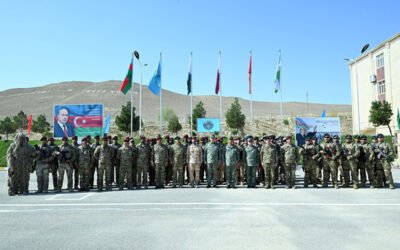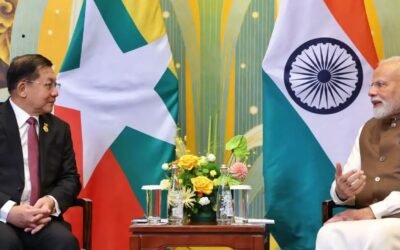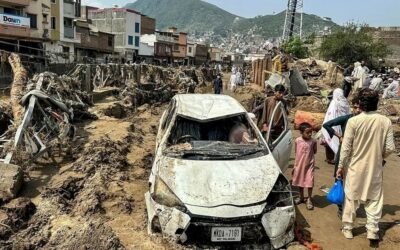On August 21, 2013, residents of Ghouta, a suburb in Syria in Damascus, awakened to one of the worst titers of the civil war. Sarin gas is a hazardous kind of weapon, as the rockets were flown into residential areas. In a few minutes, thousands of people started struggling with breathing, falling, and fainting. In their homes and on the streets, dead families, and in many cases, children, were found.

Source: UN
Hundreds of civilians died due to the attack, and some estimates revealed more than 1,000 people were killed. Others were killed in the thousandsan, d miles of others sustained harm and a lifetime health impact. The attack itself was particularly shocking because it happened in a densely populated area and it was directed not against the military forces but against ordinary people. The sickening pictures of children and families struggling to breathe permeated around the globe and became literal images of the violence of the Syrian war.
You May Like To Read: Over 70 Killed in Devastating Bus Collision in Western Afghanistan Amid Refugee Repatriations
Syria and the Chemical Weapons Deal: Diplomatic Fallout
The Ghouta attack compelled the world to act. The use of chemical weapons in Syria was considered a scandal that needed to be acted against after the shocking pictures and reports were shared by various countries demanding that the government take action to stop. Earlier, the United States, through President Barack Obama, had issued a warning that the use of such weapons would be considered a red line. Its government, and relations with it, were in the spotlight at the time, with there being a discussion of U.S. airstrikes against Syrian government targets.
Nevertheless, this was solved by diplomatic means instead of military action. The American-Russian team negotiated the agreement with the Syrian government. Within the framework of this agreement, Syria has accepted to relinquish its chemical weapons and become a signatory to the Chemical Weapons Convention (CWC). It was mandated that the Organization for the Prohibition of Chemical Weapons (OPCW) was to remove and destroy the declared stockpiles of Syria.
In the next few months, a large portion of the chemical arms in Syria will be destroyed by international oversight. This was considered a great push to diplomacy. Soon, problems occurred. It was not certain whether Syria had disclosed all of its weapons, and further reports indicated that chemical attacks were still being carried out after the deal. This demonstrated the boundaries of international agreements.
The Situation of Use of Chemical Weapons in Syria
Even in 2013, after the deal, the horror of chemical weapons in Syria did not end. There were other reports of new chemical attacks in the years since then. The investigations made by the United Nations and the OPCW confirmed that the chlorine gas, along with the possible usage of the sarin gases, took place once again in different areas of the country as well.
These strikes demonstrated that not all chemical weapons in Syria had been surrendered, and these also revealed that new ones were being manufactured. They too demonstrated the very hard task of enforcing the international agreements amidst the battle of a vicious civil war. Although the Syrian government was frequently accused, it did not admit its wrongdoing, thus many disputes followed at the Security Council.
This was the reality of the ordinary Syrians who could not be sure that the possibility of the use of chemical weapons would not arise. Every new attack was followed by terror, pain, and outrage of the individuals and also by discontent of the global community over the failure to take firm measures.

Source: AA
Humanitarian Consequences
The aftermath of the Ghouta chemical attack is traumatic not only to the victims but also to the Syrian society. Affected victims of the attack reported chronic issues like difficulty in breathing, nerve damage, and general weakness. Families have lost loved ones during one night without parents to take care of the children, and society with the related grief.
Besides the physical destruction, there was a massive psychological trauma. Individuals who survived the attack harbored phobias and nightmares for several years. The parents were afraid that it might repeat, and the children who lived developed traumatic experiences of being unable to breathe, screaming, and having their loved ones die.
Humanitarian organizations attempted to assist, but due to the continued war, it was incredibly difficult to provide adequate medical and mental health care. The displacement of a large population created a lot of refugees who were driven out of their homes so that they could avoid bombings and hypothetically be saved, in the event of a chemical attack or the effects of chemical substances. Ghouta to them was not an incident but the start of their unstable and agonizing life.
The Lessons and Legacy
The Ghouta chemical attack of 2013 was another painful event, reminding the fragility of international laws and agreements in times of war. It demonstrated how weak the global enforcement is in situations where powerful states are divided and are not keen on enforcing the situation on a strong note. Although Syria was compelled to join the Chemical Weapons Convention, subsequent attacks revealed that regulation is also not enough to stop intentional offenders.
Twelve years after the memory of the Ghouta attack raised the necessity of a stronger measure of accountability, greater protection of civilians, and enforced consequences for those who manage to use the prohibited weapons. In the case of Syrians, justice is yet to be served, and their plight remains a representation of how the world is failing to prevent mass atrocities.
You May Like To Read: Deputy Prime Minister Ishaq Dar in Kabul to Attend Pakistan–China–Afghanistan Trilateral Foreign Ministers’ Meeting




























